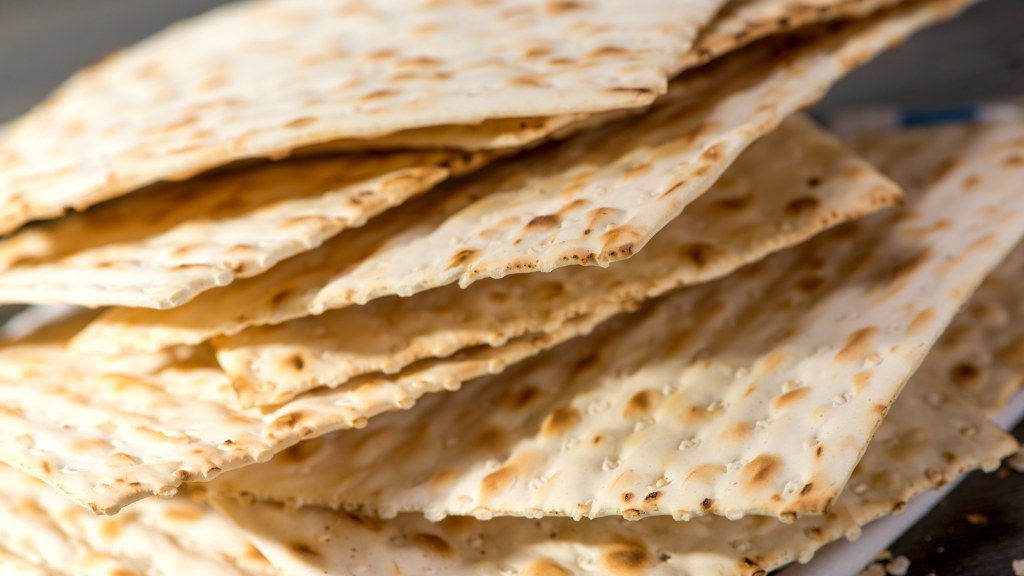Matzah – Signs of the Faith
In this series, ‘Signs of Faith’, objects that express Jewish faith are explained and discussed.
The matzah will be familiar to many. It is the flat, hard cake that is eaten during Pesach (Passover). The Hebrew word matzah can be translated as unleavened. What is unleavened? It is when the dough for the matzah is not allowed time to rise. In the Jewish teachings, preparation of the matzah is precisely defined. The entire baking process may not be longer than eighteen minutes.
The Bible speaks of the feast of the matzot (plural of matzah), as well as Pesach (Leviticus 23:6). It coincides with Pesach yet is distinct from it. The feast of the matzot lasts seven days. It starts with the removal of all leaven from the house. Leaven is chametz in Hebrew. Originally, it was a piece of old dough, sourdough, that caused the fresh dough to rise. All crumbs, all old flour, is all burnt. For seven days, nothing leavened may be consumed. All products that are leavened or risen are banned, also beer, for example.
The commandment to eat the matzah was given on the eve of the exodus from Egypt. It symbolised the haste with which the Israelites had to leave Egypt. Eating the matzah recalls the liberation from slavery of Egypt. “This is the bread of affliction (Deuteronomy 16:3) that our fathers ate in Egypt,” says the Haggadah, the liturgy of the Seider (the Passover supper). Those who eat the matzah at the Seder table, at that moment, personally experience the affliction the fathers in Egypt underwent. It is as if you yourself are leaving Egypt. That is how you should celebrate the Seider, the Haggadah says.
Eating the matzah recalls the liberation from slavery of Egypt.
As a matter of fact, the matzah appears earlier in the Bible, in a non-cultic context. Lot, Abraham’s nephew, baked matzahs for the angels visiting him (Genesis 19:3). Abraham told Sarah to ‘quickly’ prepare bread cakes when the three men came to him (Genesis 18:6). Maybe here, too, we should think of matzahs.
For the grain offerings in the temple, too, matzahs were used. Other than the matzahs for Pesach, these were often prepared with oil.






